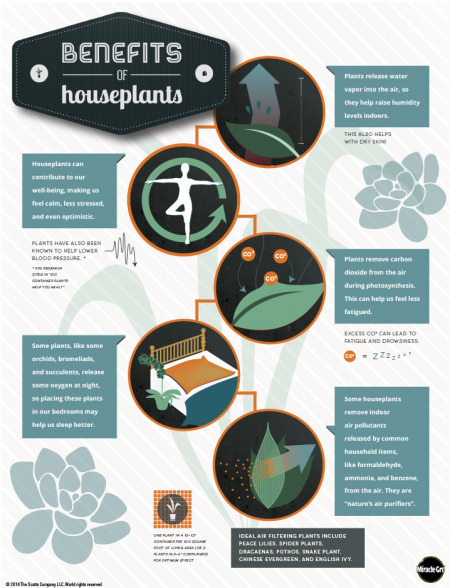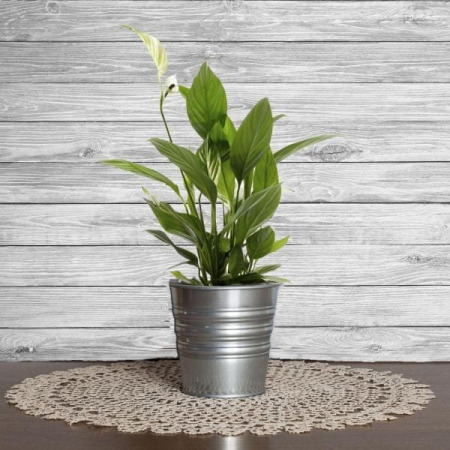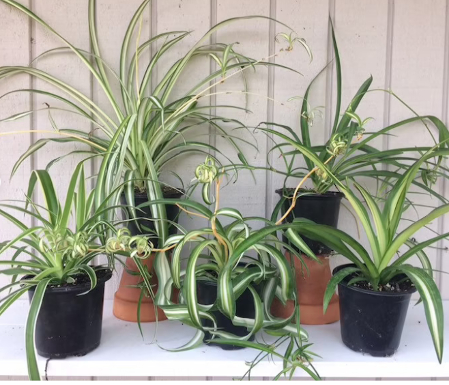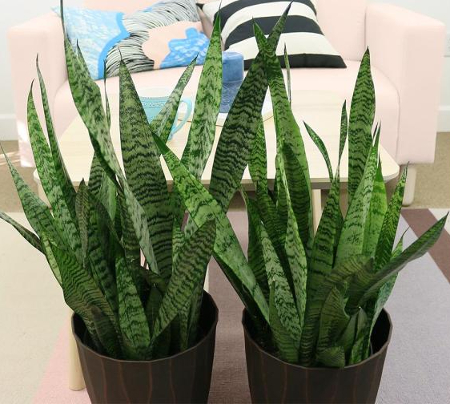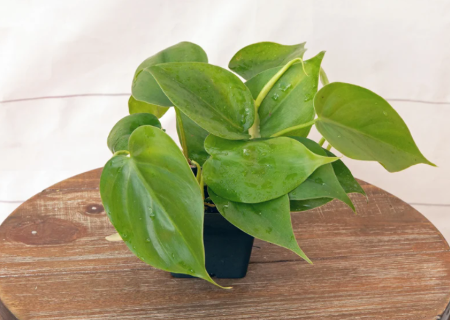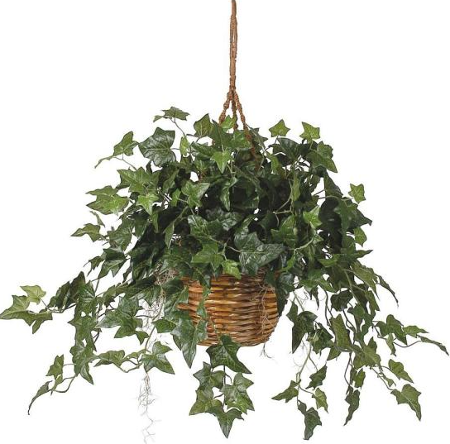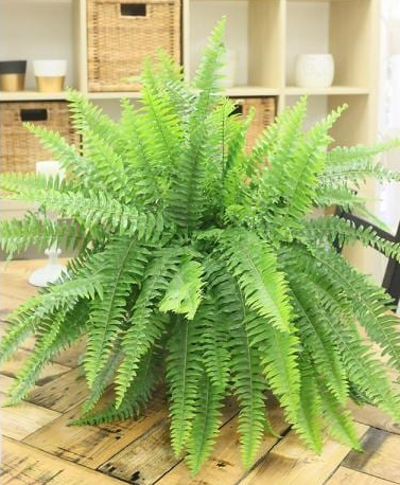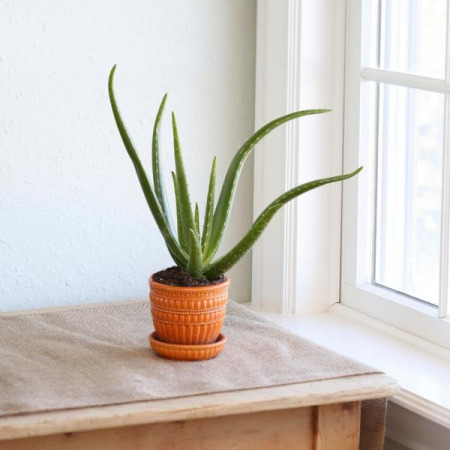As someone who thrives on her connection to the outdoors, I always feel a little let down during winter. From the scarcity of sunlight to the soul-penetrating wind chill — not to mention the constant ballerina dance necessary to brave icy pavement — Mother Nature seems so cruel and capricious.
But rather than host my annual pity party this year, I’m striving to find solutions to the season’s malaise.
A healthy dose of vitamin D? Check. Staying active through endorphin-cranking exercise? Double check. Making sure I replace the flickering bulbs in my apartment so I don’t have to dwell in darkness? Okay, I’m still working on that one.
But something has been missing that I never considered until recently, when I stumbled upon a new pandemic-inspired trend: plant parenthood. The phrase sounds like a clever punchline but it’s more than just a play on words: it’s a movement to channel our isolation energy into caring for our photosynthetic friends, a way to brighten our melancholy moods by illuminating our indoor spaces.
Plant Friday! My mega monsterra now split into 4 – one for 9yo’s room and a couple for gifts for my friends. Could not understand mum’s obsession with plants until the last couple of years. They really do make me happy! #plantparent #wellbeing 🪴 🌱 pic.twitter.com/bkNypbn6XK
— Suba Thiru 💙 (@suba_thiru) January 21, 2022
Now, if the swift death of my childhood Tamagotchi was any indication, I could probably kill a cactus (and, as the comedian Demetri Martin has joked, “I’m less nurturing than a desert.”) But veteran caregivers will tell you that plant parenting is not all that complicated, especially if you choose the right houseplants.
There’s even a Reddit forum called /r/PlantParenthood, which prides itself on sharing wisdom (and colorful photos) with beginner and seasoned parents alike. The front page proclaims, “If you love your plants like they’re your children, you’ve come to the right place.”
Still, I felt a bit skeptical at first. I mean, maybe I could keep a humble houseplant alive if I really committed to it. But would the reward even be worth the effort or are the benefits of #plantparenthood merely placebo?
Science says: Give plants a chance. Studies have shown that indoor plants are associated with improved mental health in a variety of specific ways, including reduced stress, increased productivity and focus, faster healing from illness, you name it. The stress-busting effects are physiological, too — interacting with plants can even lower blood pressure. And, of course, as if those boosts aren’t enough, these humble plants have been shown to purify the air we breathe on a daily basis.
Sold yet? Me, too. Time to put the skepticism to rest and embrace plant parenthood as part of a healthy self-care routine. But if you’re a nervous beginner like I am, you know you can’t just go out and adopt the first houseplant that gives you butterflies (love at first -phyte?). You need to snag a few starter shrubs, low-maintenance plant progeny that are, well, child’s play to keep alive.
So where does a neophyte plant parent begin? Which houseplants can cleanse your space while being easiest to raise? Don’t worry, dear reader — I got you, girl. In my own judicious journey to become a plant parent, I’ve compiled a list of low-maintenance houseplants that anyone can look after and love. Take a deep breath with your pick of these purifying plants!
Peace Lily
With its emerald green leaves and signature white spathes, the peace lily can brighten your room while requiring very low light to thrive. A healthy peace lily blooms twice a year, once in spring and again in fall, with the white flowers resembling the peace flag. According to NASA, the peace lily is one of the best plants for purifying, as it removes toxins such as formaldehyde and ammonia from indoor air. The plant’s leaves ingest acetone vapors, which reduces mold and mildew in your home. So, you can breathe peacefully even in your bathroom.
Care Tips:
-
Expose to low, indirect light (avoid direct sunlight)
-
Store in high humidity
-
Water at least once per week
-
Warning: Plant is toxic to pets
Spider Plant
The spider plant sprouts long, thin foliage and can produce small white flowers on its stems. The plant is considered one of the easiest houseplants to grow because it can adapt to even the harshest of conditions (or most negligent of parents). The spider plant was also praised by NASA for its air-purifying abilities, including that it eliminates formaldehyde, carbon monoxide, and other toxins in as quickly as two days. Since the leaves absorb dust and mold, the spider plant is among the best for busting allergies — so settle on this one if you’ve had your share of sneezing.
Care Tips:
-
Expose to bright, indirect light (avoid direct sunlight)
-
Store in moderate to high humidity
-
Water about once per week (less often in winter)
-
Plant is non-toxic to pets
Snake Plant
Despite its nasty nickname of “Mother-in-Law’s Tongue,” this succulent plant thrives best on neglect, meaning that it requires little light or moisture. Even by leaving it alone, the snake plant grows quickly and can sprout small white flowers when it reaches a few years old. Similar to other succulents, the snake plant also helps filter indoor air, and it’s one of few houseplants that continues to purify at night. Stick a snake plant in your bedroom and you can kick the Breathe Right strips while you sleep.
Care Tips:
-
Expose to low to high light (avoid direct sunlight)
-
Store in moderate humidity
-
Water every 2-8 weeks (only when soil is almost completely dry)
-
Warning: Plant is toxic to pets
Heartleaf Philodendron
Also called the Sweetheart Plant, this vibrant green vine showcases fast-growing foliage and slender stems. With its ability to thrive in low light and moist conditions, the plant is much easier to dote on than your human sweetheart! According to NASA, the philodendron is among the most effective plants for reducing formaldehyde, a chemical in insulation that can cause irritation to your eyes, nose, and throat. If you find yourself constantly clearing your throat, it’s time to have a heartleaf and clear your air instead.
Care Tips:
-
Expose to low to high light (avoid direct sunlight)
-
Store in high humidity
-
Water every 1-2 weeks
-
Warning: Plant is toxic to pets
English Ivy
This fast-growing evergreen is a hardy and low-maintenance houseplant. Another top-notch nomination by NASA, the ivy’s heart-shaped leaves absorb toxins like benzene, formaldehyde, and even particles of fecal matter and mold. In fact, research shows the English ivy can nearly eliminate all fecal matter in an enclosed space in as little time as 12 hours. Pet owners with animals that poop indoors, this houseplant is for you.
Care Tips:
-
Expose to medium to bright light (direct or indirect)
-
Store in high humidity
-
Water up to 3 times per week
-
Warning: Plant is toxic to pets
Boston Fern
The Boston fern does best in bright, indirect sunlight and high humidity, but even beginners can reap the benefits with some attention to the evergreen’s needs. This plant has been praised for removing pollutants like formaldehyde from the air and toxic metals like mercury from the soil. Plus, as a natural humidifier, the Boston fern increases moisture in the surrounding air. Dry-skin sufferers, this fern should be a fixture in your home.
Care Tips:
-
Expose to bright, indirect light (avoid direct sunlight)
-
Store in high humidity
-
Water once or twice per day
-
Plant is non-toxic to pets
Aloe Vera
This short-stemmed succulent enjoys bright light but otherwise requires minimal watering or maintenance. Yet another NASA-approved houseplant for its air-filtering properties, aloe vera absorbs carbon dioxide and produces abundant oxygen even at nighttime, leading to better-quality sleep. Aloe is also known for its role in smoothing and soothing skin; it even helps heal your minor burns and scrapes. Plus, you can ingest aloe for health benefits that cleanse your body from the inside out! A drop in your smoothie, a dollop on your skin — you can’t get more versatile than aloe vera.
Care Tips:
-
Expose to bright, indirect light (avoid direct sunlight)
-
Store in moderate humidity
-
Water every 2 to 3 weeks
-
Warning: Plant is toxic to pets

Have you taken the plunge into plant parenthood? What are your tips and tricks for keeping your plant progeny alive? Share in the comments!
Check These Out For More Ways To Nurture Your Green Thumb:

